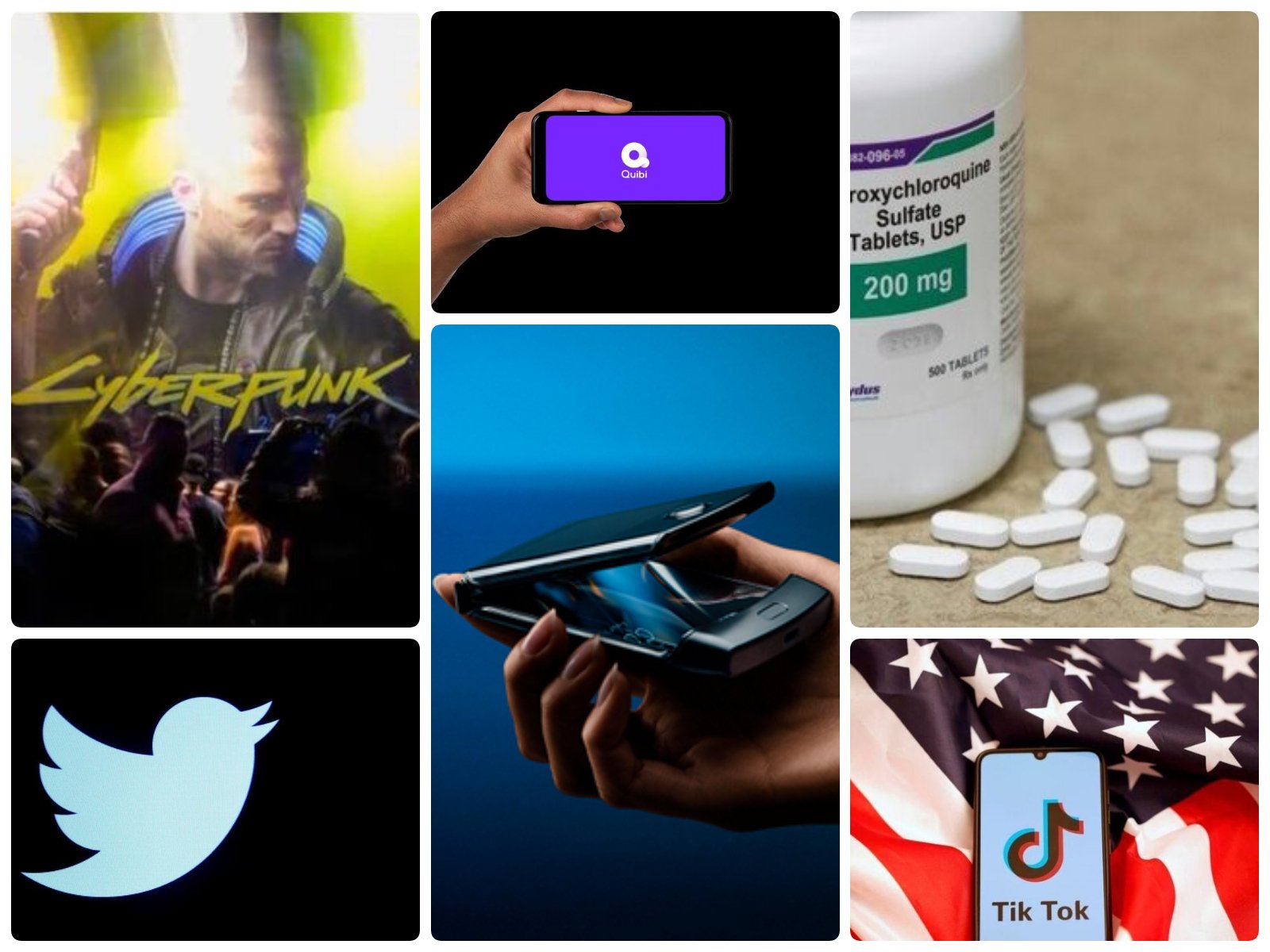
2020 was a year of incredible breakthroughs in science and technology. More was demanded of technology than ever before as governments battled Covid-19 and in search of a vaccine. While 2020 saw the launch of some remarkable wearables, tablets, drones and smartphones, there were also some epic failures.
Twitter Hack
In July, an extraordinary hacking spree hit Twitter, leading it to briefly muzzle some of its most widely followed accounts.
Hackers obtained control of employee credentials to hijack accounts including those of Democratic presidential candidate Joe Biden, former president Barack Obama, reality television star Kim Kardashian, and tech billionaire and Tesla founder Elon Musk.
Posing as celebrities and the wealthy, the hackers asked followers to send the digital currency bitcoin to a series of addresses. By evening, 400 bitcoin transfers were made worth a combined $120,000. Half of the victims had funds in US bitcoin exchanges, a quarter in Europe, and a quarter in Asia according to forensics company Elliptic.
Cyberpunk 2077
Cyberpunk 2077 was this year’s much-awaited game featuring Hollywood star Keanu Reeves. However, Sony pulled the game from its PlayStation Store soon after release and is offering full refunds to gamers as the flagship title was rife with bugs.
Polish video game maker CD Projekt SA said it sold more than 13 million copies of its Cyberpunk 2077 game through December 20, below analysts' forecasts.
“While the number ranks Cyberpunk as one of the top-selling titles this year, it implies lower PC sales or higher refunds on consoles than we anticipated after launch, likely due to the various bugs and performance issue on PCs other than the high-performance ones,” Jefferies analysts said in a note.
Adobe's chief product officer predicts 8 tech trends of 2021
Hydroxychloroquine: The covid drug that never worked
Hydroxychloroquine was one of several existing drugs that scientists were optimistic will show improved symptoms and recovery in clinical trials for patients with Covid-19.
The World Health Organisation (WHO) said that it was discontinuing its trials of the malaria drug hydroxychloroquine and combination HIV drug lopinavir/ritonavir in hospitalised patients with Covid-19 after they failed to reduce mortality.
“These interim trial results show that hydroxychloroquine and lopinavir/ritonavir produce little or no reduction in the mortality of hospitalised Covid-19 patients when compared to standard of care. Solidarity trial investigators will interrupt the trials with immediate effect,” the WHO said in a statement, referring to large multicountry trials that the agency is leading.
British scientists also stated that the anti-malarial hydroxychloroquine, touted by US President Donald Trump as a potential “game-changer” in the pandemic, was “useless” at treating Covid-19 patients.
“This is not a treatment for Covid-19. It doesn’t work,” Martin Landray, an Oxford University professor who is co-leading the trial, told reporters.
Motorola Razr
The American smartphone brand launched an upgraded, sleek, and stylish Motorola Foldable Razr. However. despite being a beautiful looking device, the smartphone struggled to gain sales.
The device stopped fully folding after just over 27,000 folds and around three-and-a-half hours in CNET’s “FoldBot” folding machine. When the team were able to close it the hinge became faulty.
TikTok bans
TikTok had a tumultuous year. Owned by China’s ByteDance the app faced scrutiny from the Trump administration who expressed concerns over the handling of personal data by the video app.
Trump administration moved to ban TikTok over national security concerns and the safety of the personal data. It represented a major blow for TikTok’s owner, Beijing-based ByteDance, which became one of only a handful of truly global Chinese conglomerates thanks to the app’s commercial success.
India banned 59, mostly Chinese, mobile apps including Bytedance’s TikTok after a deadly border conflict between the two nuclear-armed nations in which 20 Indian soldiers have died.
The apps are “prejudicial to sovereignty and integrity of India, defence of India, the security of the state and public order”, the ministry of information technology said.
PTA issues notices to Google, Wikipedia over sacrilegious content
Further, the Pakistan Telecommunication Authority (PTA) had issued instructions to impose a ban on TikTok after receiving a "number of complaints from different segments of the society against immoral/indecent content" that was shared on the app.
PTA removed the ban on video-sharing app TikTok, after assurances from the platform's management that they will block all accounts involved in spreading 'obscenity and immorality'.
Quibi
Quibi, the multi-billion-dollar streaming platform was launched in 2020, providing entertainment with short, Hollywood-quality clips to watch "on the go". The platform shutdown only 6 months after its launch.
Quibi was backed by $1.75 billion in funding and big names like Hollywood power player Jeffrey Katzenberg and former Hewlett-Packard CEO Meg Whitman.
With a fee of as low as $5, a month users could access short videos designed to only be played on their phone. However, six months into its launch the streaming service was firing talent, reports Technology Review.
In a farewell letter, studio mogul Jeffrey Katzenberg and Quibi CEO Meg Whitman said their pursuit of a “new category of entertainment” might have been misguided, but they also blamed the pandemic, which kept people at home in front of the TV.
“Unfortunately, we will never know, but we suspect it’s been a combination of the two,” they wrote. “Our failure was not for lack of trying.”


1730752226-0/Untitled-design-(35)1730752226-0-165x106.webp)




1730625796-0/Copy-of-Untitled-(13)1730625796-0-270x192.webp)
-in1715608548-0/World-Artificial-Intelligence-Conference-(WAIC)-in1715608548-0-270x192.webp)
1730538908-0/BeFunk_§_]-(27)1730538908-0.jpg)




1730706072-0/Copy-of-Untitled-(2)1730706072-0-270x192.webp)
COMMENTS
Comments are moderated and generally will be posted if they are on-topic and not abusive.
For more information, please see our Comments FAQ